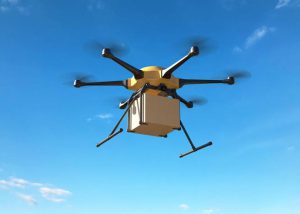Neuralink, a company owned by Elon Musk which focuses on mind control recently released a blog post video with details of an invention which uses its hardware making it possible for a monkey to play Pong with only its brain.…
Category: Machine Learning, AI
Scientists Show Risks of Emotion Recognition Software Through Online Game
Technology designed to identify and recognize human emotions using machine learning has been frowned upon by ethicists. Now, researchers are on a quest to unmask its reality claiming it could be useful in situations such as road safety or market…
New AI Backpack System For Guiding Vision-impaired Wearers
Researchers at the University of Georgia recently developed a backpack system to assist vision-impaired wearers navigate their environment better. The backpack uses a Luxonis OAK-D spatial camera, with an on-chip edge AI processor and uses Intel’s Movidius image processing technology.…
Computer Model Tracks Cellphone Data to Predict the Spread of COVID-19
Last year, Assistant Professors in the Department of Computer Science at Binghamton University’s Thomas J. Watson College of Engineering and Applied Science, Arti Ramesh and Anand Seetharam published several studies using data mining and machine learning models in response to…
“Smart” Clothes Which Measure Movement
Researchers from MIT’s Computer Science and Artificial Intelligence Lab (CSAIL) have designed a clothing which makes use of special fibers to sense a person’s movement through touch. The clothes are also capable of determining if a person is walking, sitting…
Microbots Swimmers Increase Speed with Artificial Intelligence
Recent studies show that machine learning could assist tiny microbots swim through fluid and reach their goal without getting knocked off course by random movement of particles on their journey. Microbotic ‘swimmers’ are usually designed to copy the manner bacteria…
New Diversity Training Using Virtual Reality
Companies have customarily responded to bias and all kinds of discrimination with unconscious bias training, which usually involves PowerPoint presentations or click-through courses to be checked off by employees. Some companies go further by organizing a Zoom session with experts…
Mobility Data for Response to COVID-19 could Exclude Older and Non-white People
An effective method used to analyze appropriate response to COVID-19 is information on an individual’s mobility— usually measured by their smartphones. A recent study tested the reliability and prejudice of popularly used mobility data, discovering that older and non-white voters…
Israel Town Conducts Airspace Test for Delivery Drones

Hadera, a town in Israel was abuzz with delivery drones on Wednesday as the authorities tested a central control room for the safe coordination of pilotless aircraft with each other.
The fame of the inexpensive, low-flying drones and their potential for transporting almost anything from place to place has brought up concerns of mid-air collisions which could result in casualties on the ground.
‘This is an opportunity for the regulators to learn what is needed to establish delivery drones as a daily reality, and for the drone operators to learn what is expected of them in turn’, said Hagit Lidor of the Israel Innovation Authority, a state agency involved in the test.
In the initial live trial of a two-year test phase launched in January, the airspace of rural Hadera was released to five private firms which flew drones on criss-cross runs to test the responses of a control room which was 35 miles away in the city of Haifa.
The drones were usually sent up 20 at a time. To keep them no more than 120 meters above ground and no less than 60 meters apart, the staff in the control room sent alerts and rerouting instructions to the operators electronically.
‘For the first time, we are managing airspace as a single entity, synthesizing drone operators with established civil and military aviation’, said Lidor.
She added that regulated commercial drone deliveries in Israel were not likely to happen before 2023, at the testing’s due end and relevant issues like legislation would have to be discussed.
The organizers said helicopters/planes were not a planned part of the trial which occurred on Wednesday, but may be involved in the next trial in June. The drones were told to steer clear of crop-dusters and paragliders commonly seen in Hadera by at least half a mile.
Lidor added that all the drones were equipped with parachutes to ensure safe landings in the event of a malfunction.
By Marvellous Iwendi.
Source: Reuters
Robot Gaze Can Elicit Response from Reluctant Participants in a Group
A recent study has suggested that robots can elicit a response by making eye contact even with people less likely to participate in discussions. Researchers at KTH Royal Institute of Technology published results of experiments where robots led a Swedish…